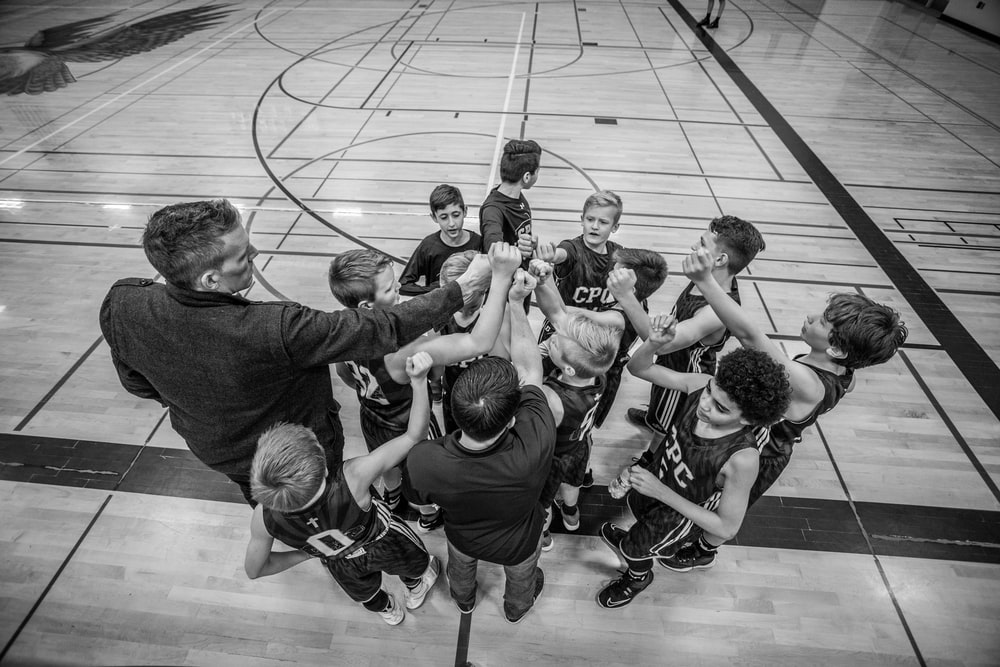How to Win Graciously – A Guide for Tweens and Teens
Few things in life match the adrenaline rush of emerging victorious after a competitive game. Making the winning move in chess, the winning shot in basketball, or sticking the landing on your Level 10 gymnastics routine can make you feel like you’re on top of the world. That is, until you see the crestfallen look on your opponents’ face and realise you have no idea how to act around them after defeating them.
Books on sportsmanship, as well as every anime or movie you’ve ever watched have taught you how to lose gracefully. You congratulate your opponent, applaud when they’re awarded the trophy, and smile for the pictures. But what if you’re the one who lands on the tallest block of that podium?
Here’s a guide on how tweens and teens can exhibit grace when winning. If you’re a parent raising competitive kids, it is imperative that you teach these to your budding athletes as early as you can, and keep on reminding them before every game they participate in. Winning has a way of getting into one’s head, so it’s important to repeat the lesson over and over again until it becomes second nature to them.
Any mentor can teach you how to lose gracefully. But learning how to win gracefully is just as important. Here’s a comprehensive guide for teens and tweens on the practice of winning with grace. Share on XRELATED: How Teens and Tweens Can Learn to Lose With Grace
1. Enjoy victory, but never gloat

There’s nothing wrong with one or two fist pumps after winning, especially after a spirited competition, but there is a thin line between celebrating and being boastful about it. Teens and tweens should be taught that trash talking is not tolerated, especially once the game is done and won.
Saying expressions like “That’s what I’m talking about!” or “Boo yeah!” may be common ‘locker room talk’ when you’re around teammates and coaches from your side of the contest, but these expressions are unsportsmanlike and should never be said in the presence of other competitors.
Humility is a lesson learned not only in defeat, but maybe even more so in victory. Budding athletes should always have the mindset that winning does not make one better than the other players. It might simply mean they trained better, worked harder, or had better conditioning at the time of the competition.
A tip for parents and coaches: always differentiate ‘earning’ and ‘deserving’ a win. We always hear adults congratulating kids for winning contests, saying they ‘deserved’ it. This statement is problematic because it gives young ones the wrong impression that the other player or team probably did not ‘deserve’ to win.
Meanwhile, saying they ‘earned’ the win because they practiced more or played with better teamwork takes away any sense of entitlement they may have of the win, and fosters the idea that if they want to keep winning, then they have to continue working hard. No one is inherently ‘deserving’ of a win – those who work harder simply ‘earn’ it.
Parents of young, competitive athletes have their work cut out for them. Here’s a little something to help you teach your little one how to win graciously. Share on X
2. Thank your opponent
Thanking one’s opponent is a beautiful show of sportsmanship that should be practiced from a very young age. Even if it’s an ‘unofficial’ game of badminton between friends, the winner must always come up to his/her opponent and say “Thank you for the nice game.” or simply, “Thank you for taking the time to play with me.”
Having a competitive mindset is no doubt a huge factor in succeeding in sports, but winning is definitely not everything. Sports competitions are designed to foster unity and goodwill between participants, so it is imperative that everyone feels great after the game – not just the winners.
Giving opponents a kind and genuine compliment is also a good habit to build. Even though they didn’t win, you might have noticed something they did that impressed you during the game, so a quick comment on that might uplift their spirits.
If it was an ice skating competition, for example, you might have noticed that they can do double pirouettes. You can say you really liked it, and would want to learn how to do the same in the future. Believe it: winning is sweeter when you know there are no ill feelings after the contest.
Sports builds character, but only when one knows how to lose - and win - gracefully. Here are seven lessons on how to remain humble in the face of victory. Share on X
3. Thank your teammates/coaches

Aside from extending gratitude to opponents, athletes should never forget to thank those who were in their corner – the ones who put their faith in your abilities and skills, and those who helped you train to be a better player.
If there is anyone who might be happier than you over your triumph, it would be them. A simple “Thank you for believing in me.” should be enough payback for all the efforts they exerted for you.
Thanking your teammates (if you had any) is also customary, since victory in team games are always a result of everyone’s efforts. It matters little who scored the most points or if there are members who spent the entire game supporting the team from the bench – they all played an integral part in the win and should be congratulated equally.
At the same time, never forget to appreciate the people who came to watch you play, without knowing whether you’d win or lose. The people who cheered for you during the game deserve as much gratitude, too. Tell them, “Thank you for watching me play,” or “I’m really happy that you are here with me today,” are words that anyone would be grateful to hear from you.
4. Practice empathy

It is an inevitable part of some games that someone might get hurt physically. One of the most impressive displays of humility a winning athlete can do is make sure his/her opponents are fine after the game.
If you ever notice that your rival is having a hard time walking or moving after the game, be the first to offer assistance. Now, if they say they don’t need any help, respect that and move on. If they do accept your aid, make sure you carefully assist them to their parents or coach where they can receive proper medical attention.
Injuries are tough to handle, and you might end up feeling guilty about it. However, as long as you did not play dirty, you should not feel as if it’s your fault. Just be ready to offer any help you can after the match is done.
The general rule is to practice empathy and be sensitive to what the other side might be feeling after the contest.
The best of athletes know not just how to lose gracefully, but to take victory with as much humility as one can muster, too. For tweens and teens, here are some ways you can show grace when winning. Share on X
5. Stay friends with your rivals
Building friendships is another main reason why sports leagues are instituted. But the other party might feel too terrible about their loss to approach you to exchange niceties after the match, so the responsibility to engage falls upon you, especially for people you are meeting at sporting events for the first time.
A simple “Let’s play together again some time” should be nice, then follow it up with actual efforts to remain friends after your first meet-up. Showing genuine interest in keeping the connection can instantly make them feel better, too.
No one should walk away from a game feeling like they didn’t gain anything. Aside from the experience, you must assure everyone that at the very least, they’re walking away having made new friends.
6. Think before you click

Winning graciously does not end once you walk out of the playground, gym, stadium, or arena. You have to continue being considerate and showing empathy even when you’ve come home, especially if you have access to social media.
If possible, refrain from posting videos your family members might have taken of the event, especially if you’re connected with your opponent on social media. They might not be comfortable reliving their moment of defeat so soon after the match.
Likewise, be diplomatic in responding to the people who might be congratulating you on social media. Saying things like “No sweat” or “It’s nothing, I didn’t even have a hard time,” or anything to that effect could hurt the feelings of your opponents. Remember that words are powerful. It’s something you can’t take back, especially if you’ve already hurt another person with it.
Reply with a “Thank you, I really enjoyed the game,” or “Thank you. It was a tough one but I had a lot of fun.” Search your feelings for something genuine yet sensitive to your opponents.
Hey, young athletes! Did you know there are ways you can celebrate victories while still being sensitive to your opponents’ feelings? Here’s your handy guide on how to win graciously. Share on X
7. Continue improving your craft

As mentioned earlier, winning one game does not mean you are inherently better than the others who weren’t as fortunate. The best way to show respect to the game is by continuously working on your craft and making sure you consider your biggest rival to be yourself. Strive to always do better than your last performance.
Athletes who let one win get to their heads rarely have room for improvement, because they let themselves be content at the level they’re currently playing at. At a young age, you should learn how to recognize that there is always a way you can improve your game, no matter how frequently you’re winning.
It may be a cliche, but the outcome of games are rarely as important as the character you show while playing, and the lessons you learn along with it. Winning gracefully is not just about protecting the feelings of your opponents – it’s also about learning the beauty of humility.
As NFL Hall of Famer Bart Starr put it, “How you play shows some of your character. How you win or lose show all of it.”










